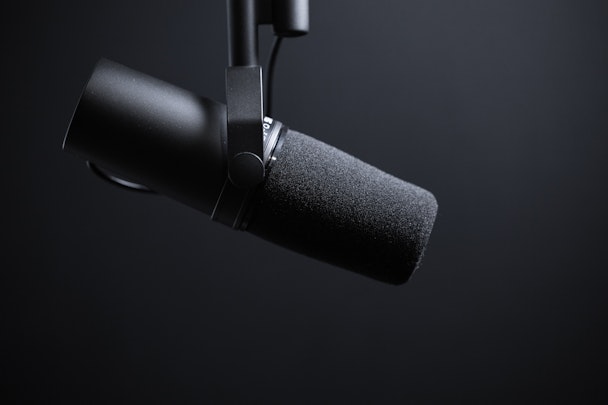Should podcasting platforms be doing more to allay brands’ safety concerns?
The podcast industry is largely unregulated but, as we find out as part of The Drum’s Audio Deep Dive, a spate of high-profile cases of misinformation and hate speech has renewed calls from advertisers for increased policing.

Should the industry be doing more to highlight the risks for brands? / Jukka Aalho via Envato
Without proper checks in place, advertisers risk reputational damage when appearing on podcast platforms. Alongside podcast producers, some brands have been arguing that it’s time for the platforms to start ramping up content moderation.
Tamara Littleton is chief executive officer of The Social Element and works with brands including Dr Pepper and Nissan. She thinks the industry should be doing a lot more to highlight what the risks are for brands and how they can protect themselves.
Littleton, who has her own podcast and runs brand safety workshops, says the industry has only just started to take note of the issue. “It isn’t being drilled home like other media because podcasting is still not seen as mainstream advertising. It’s slightly early days because brands haven’t moved into it in such a big way compared to other platforms.”
Spotify and Integral Ad Science united in June for the podcast industry’s first third-party brand safety and suitability reporting tool. Spotify’s brand safety plans follow the fallout from the Joe Rogan saga in February.
Jake Dubbins, managing director at Media Bounty, calls podcasting a “wild west” environment and says ”there isn’t any regulation in this space”. He asks: ”Who currently looks after podcasting? Because I don’t have a clue. Who do you currently go to if you hear awful anti-abortion content?”
Dubbins is also co-chair of the Conscious Advertising Network, which campaigns against advertising funding misinformation and hate speech. He says the industry is becoming “increasingly aware of this issue [brand safety in podcasting] and talking about quality environments”.
He believes that podcasting platforms should work with NGOs and experts in this space to craft policies and invest in AI and human oversight to enforce those policies. “At some point, they [platforms] are going to have to have content moderators. I’m not suggesting that every podcast or podcaster needs to have a producer enforced on them, but there has to be a significant investment on these platforms to make sure they don’t make the same mistakes as Meta has historically made.”
Dubbins advises the platforms to create a clear definition of what constitutes free speech and what is hate speech. “You’ve got to have definitions and precision of language. If you don’t have those in the policy, then how can you enforce anything?”
Podcast advertising can either be automatically served by host platforms or partnerships can be made directly with the brand and the podcast producer.
Steve Carsey, the managing director at podcast production company Storyglass, typically works in collaboration with advertisers, producing podcasts for the likes of Red Bull and Penguin Roundhouse. He tells brands and agencies to be “aware of the danger” that can come with being associated with the wrong types of content. “Choose your partners wisely and work with people who aren’t going to expose you to those types of issues,” he advises.
Many of the major producers are trained within editorial guidelines and know what you can say legally. “If you work with those types of producers who understand compliance then you can be reassured you are going to be in safe hands,” adds Carsey.
He says the platforms serving the ads should take responsibility for policing content: “The whole business model is predicated on being a good partner.” And whie he isn’t calling for an Ofcom equivalent, Carsey says the platforms “should have some sort of method where inappropriate content can be flagged and taken down”.
For more on the power of sound, check out The Drum’s Audio Deep Dive.

